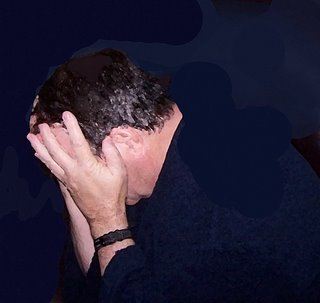
There are some things that all of us who have mood disorders share in common. Still, everyone's experience with depression is unique to them. Perhaps similar to, but not the same as anyone else's.
A little history. This has been a health issue for me since I was 15 years old (perhaps earlier). Unfortunately, I didn't know why I felt as I did. In fact, I thought that everyone had the same feelings that I did. Often, chronic clinical depression becomes a state of mind that feels "normal" to the person who suffers from it. They've never known any other way of life.
I remember the first time that a doctor ever asked me if I was depressed. I was 31 years old. I had started having migraine headaches, and had been referred for tests. The first doctor that I saw said, "Are you depressed?" I replied, "No," mainly because I didn't know what depression was supposed to feel like. Remember, this was the only state I had ever known. I was puzzled as to why he had asked me that question, but I didn't pursue it any further.
When I was 38, I was preaching for a church in New Mexico and I started having difficulty thinking and focusing on my work. My short-term memory was shot. I was frustrated and began to have anxiety attacks. I would stand in the pulpit and struggle for the right words. There was a car-sized chunk of lead sitting on my chest and I couldn't catch my breath. Oddly, the members of the church didn't notice any problems. Finally, I was so deeply depressed that I resigned and moved to Tulsa, OK to be near family. Of course, there's more to the story, but I wanted you to see how serious the problem had become.
Today, I know all about my type of mental illness. It has become a constant and familiar companion. I can easily recognize the signs when I begin another slide to the bottom of the pit. Usually, fatigue first comes on. My brain seems incapable of thought and it's hard for me to comprehend what I'm reading. I have difficulty concentrating and am easily distracted. My wife notices that I'm no longer joking or talking much. Laughter leaves the house. There's no interest in things that usually excite me. Socializing becomes painful and I try to isolate myself, even at church. I find myself staring at my computer monitor and I can't remember what I was doing.
Even simple arithmetic becomes almost impossible for me to comprehend. I want to sleep all of the time, but I know that I can't. That frustrates me. Irritation boils up unexpectedly. I become less affectionate. There is a tight feeling in my forehead. One of the first clues I get is that my eye-lids become swollen and my eyes close to a squint. A look in the mirror shows that I'm depressed. I feel hopeless and helpless. My self-esteem flees and I feel guilty because of the hardship that my illness causes. That familiar inner voice whispers, "Here we go again. Get ready for the fall."
Other than that, life is pretty good. Things do get better, eventually.
Ask someone for their personal story and be a good listener.
["I'm so low I could do a ten minute free-fall off the edge of a dime."]







